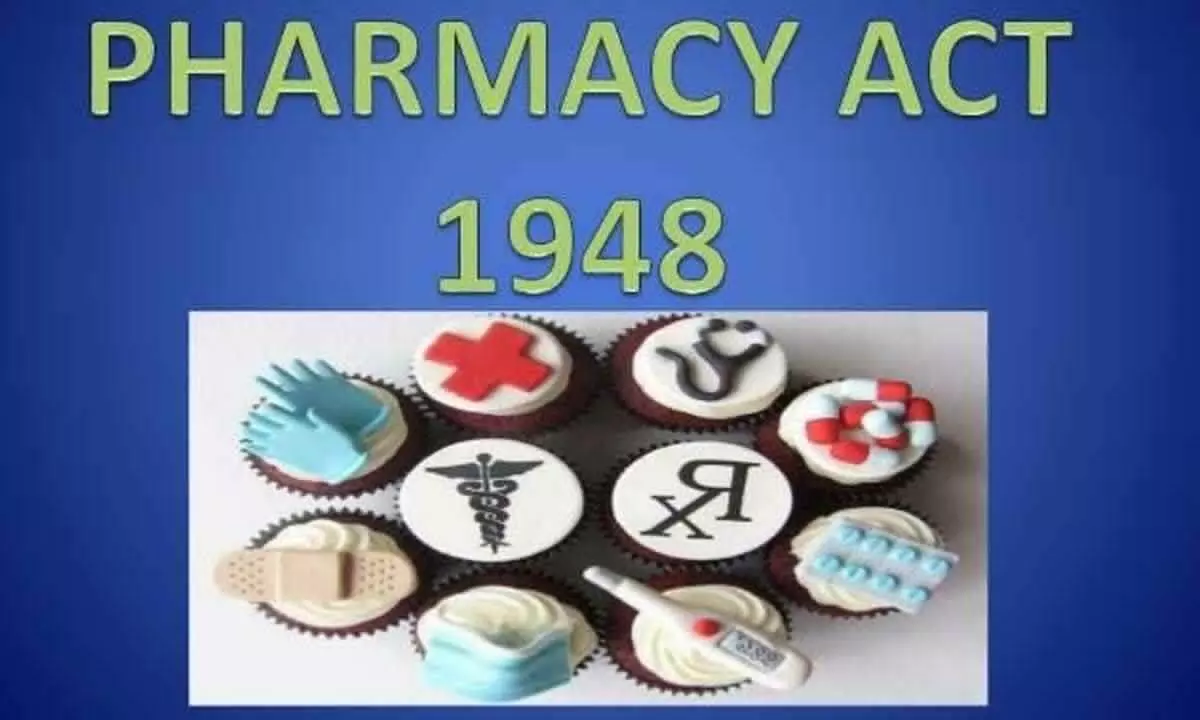Only changes in obsolete Pharmacy Act can usher in global standards
It is only in India that a diploma holder can be a registered pharmacist
image for illustrative purpose

In what could be a baffling indication of the state-of-affairs and a reflection of the apathy of the administration, the Pharmacy Act, 1948 has not been amended in the last 75 years, barring for a few changes here and there and some rules and that too by the statutory body, the Pharmacy Council of India (PCI), within the purview of the powers vested upon it.
It should be noted that the Council regulates pharmacy across spheres, including academic and as a profession.
Although belated, now is the time when drastic changes are required to be brought to the Pharmacy Act, in order to meet global standards and creation of more employment opportunities for pharmacists. In a way, a start has been made with the constitution of an expert body by the Union Health Ministry. The panel has to suggest recommendations on restructuring PCI, which was constituted in 1949 to regulate pharmacy education, profession and practice in the country. The Health Ministry’s decision to review the Pharmacy Act comes at a time when the PCI has initiated various activities like reinventing the curriculum, conducting exit exams for D Pharm students and empowering clinical pharmacists to write prescriptions. This will mark the first time that the Pharmacy Act will be amended in the Parliament. Although some attempts were made by the PCI and governments of the day, each was dashed by political interferences. However, the PCI did come up with certain amendments and brought regulations, albeit without the consent of the parliament.
That the Pharmacy Act, 1948 has become archaic and needs a thorough rethink is an undisputed fact. There are several provisions in the Act, which need to be reviewed in order to help the country attain global standards.
The minimum qualification to become a registered pharmacist is one such provision, which currently is a mere diploma in pharmacy. It is a preposterous fact that taken in the global context, it is only in India that a diploma holder can work as a registered pharmacist. All over the world, it is a pharmacy graduate who becomes a pharmacist or works in an approved pharmacy, lending credence to the highly-critical profession.
In the wake of the global paradigm shift with regard to the role and duties of a pharmacist, India should not be found wanting. The first and foremost task up ahead is to forthwith stop diploma holders from getting registered as pharmacists. In fact, D Pharm was made the minimum requirement at a time when there was severe shortage of pharmacists in the country. That scenario has changed. Now India has adequate number of pharmacy graduates, which means it is time the minimum qualification is duly raised. On should not forget that the basic qualification for medical profession and practitioners is MBBS while for a staff nurse it is bachelor in nursing. Using the same parameter, no registration should be permitted by any state pharmacy council or a tribunal on the basis of experience in dispensing medicines in pharmacies. Registration should be allowed only on achieving graduation in pharmacy (B Pharm) from a recognized university and on the submission of the degree certificate. To strengthen efficiency of the pharmacy council, the central council should take on-board representatives from the Central Drugs Standard Control Organisation (CDSCO), the National Pharmaceutical Pricing Authority (NPPA) and from the Indian Pharmacopoeia Commission (IPC).
Steps should be taken to hold the Pharmacy Exit Exam (PEE), which has to be made mandatory as a qualifying test for registration as a pharmacist. The examination should be conducted twice a year in order to admit more students. The purpose of this exam should be to assess the knowledge and skills of pharmacists and ensure that they meet the minimum standards set by the PCI. Apart from this, the penalty for dispensing medicines by unqualified pharmacists should be increased from the existing Rs. 1,000 to a minimum of Rs. 10,000 and the period of imprisonment for such contravention should be raised to two years from the existing six months.
It is a fact that the Pharmacy Act, 1948 was passed with the limited objective of making better provision for the regulation of the pharmacy profession through the constitution of pharmacy councils. It served well when compounder training course was the most commonly prevalent stream.
Now there is a major transformation in the sector. The expert panel, chaired by Dr Y.K. Gupta, president of All India Institute of Medical Sciences (AIIMS) Jammu and Bhopal, should consider the latest developments that are happening in the world in the area of pharmacy education and practice while reviewing the Pharmacy Act, 1948.

